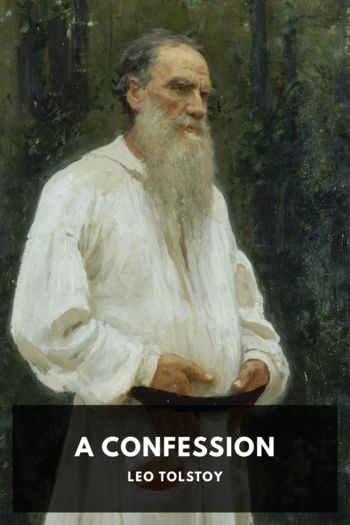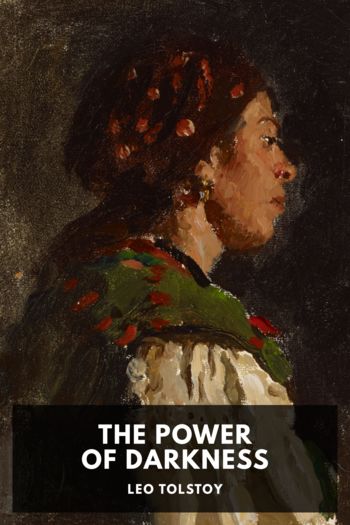Resurrection by Leo Tolstoy (best sci fi novels of all time TXT) 📕

- Author: Leo Tolstoy
Book online «Resurrection by Leo Tolstoy (best sci fi novels of all time TXT) 📕». Author Leo Tolstoy
“Come on then,” said the red-haired one, advancing towards Korabléva. “Ah! think I’m afraid of such as you?”
“Convict fright!”
“That’s her as says it.”
“Slut!”
“I? A slut? Convict! Murderess!” screamed the red-haired one.
“Go away, I tell you,” said Korabléva gloomily, but the red-haired one came nearer and Korabléva struck her in the chest. The red-haired woman seemed only to have waited for this, and with a sudden movement caught hold of Korabléva’s hair with one hand and with the other struck her in the face. Korabléva seized this hand, and Máslova and Khoroshávka caught the red-haired woman by her arms, trying to pull her away, but she let go the old woman’s hair with her hand only to twist it round her fist. Korabléva, with her head bent to one side, was dealing out blows with one arm and trying to catch the red-haired woman’s hand with her teeth, while the rest of the women crowded round, screaming and trying to separate the fighters; even the consumptive one came up and stood coughing and watching the fight. The children cried and huddled together. The noise brought the woman warder and a jailer. The fighting women were separated; and Korabléva, taking out the bits of torn hair from her head, and the red-haired one, holding her torn chemise together over her yellow breast, began loudly to complain.
“I know, it’s all the vodka. Wait a bit; I’ll tell the inspector tomorrow. He’ll give it you. Can’t I smell it? Mind, get it all out of the way, or it will be the worse for you,” said the warder. “We’ve no time to settle your disputes. Get to your places and be quiet.”
But quiet was not soon reestablished. For a long time the women went on disputing and explaining to one another whose fault it all was. At last the warder and the jailer left the cell, the women grew quieter and began going to bed, and the old woman went to the icon and commenced praying.
“The two jailbirds have met,” the red-haired woman suddenly called out in a hoarse voice from the other end of the shelf beds, accompanying every word with frightfully vile abuse.
“Mind you don’t get it again,” Korabléva replied, also adding words of abuse, and both were quiet again.
“Had I not been stopped I’d have pulled your damned eyes out,” again began the red-haired one, and an answer of the same kind followed from Korabléva. Then again a short interval and more abuse. But the intervals became longer and longer, as when a thundercloud is passing, and at last all was quiet.
All were in bed, some began to snore; and only the old woman, who always prayed a long time, went on bowing before the icon and the deacon’s daughter, who had got up after the warder left, was pacing up and down the room again. Máslova kept thinking that she was now a convict condemned to hard labour, and had twice been reminded of this—once by Bótchkova and once by the red-haired woman—and she could not reconcile herself to the thought. Korabléva, who lay next to her, turned over in her bed.
“There now,” said Máslova in a low voice; “who would have thought it? See what others do and get nothing for it.”
“Never mind, girl. People manage to live in Siberia. As for you, you’ll not be lost there either,” Korabléva said, trying to comfort her.
“I know I’ll not be lost; still it is hard. It’s not such a fate I want—I, who am used to a comfortable life.”
“Ah, one can’t go against God,” said Korabléva, with a sigh. “One can’t, my dear.”
“I know, granny. Still, it’s hard.”
They were silent for a while.
“Do you hear that baggage?” whispered Korabléva, drawing Máslova’s attention to a strange sound proceeding from the other end of the room.
This sound was the smothered sobbing of the red-haired woman. The red-haired woman was crying because she had been abused and had not got any of the vodka she wanted so badly; also because she remembered how all her life she had been abused, mocked at, offended, beaten. Remembering this, she pitied herself, and, thinking no one heard her, began crying as children cry, sniffing with her nose and swallowing the salt tears.
“I’m sorry for her,” said Máslova.
“Of course one is sorry,” said Korabléva, “but she shouldn’t come bothering.”
XXXIIIThe next morning Nekhlúdoff awoke, conscious that something had happened to him, and even before he had remembered what it was he knew it to be something important and good.
“Katúsha—the trial!” Yes, he must stop lying and tell the whole truth.
By a strange coincidence on that very morning he received the long-expected letter from Mary Vasílievna, the wife of the maréchal de noblesse, the very letter he particularly needed. She gave him full freedom, and wished him happiness in his intended marriage.
“Marriage!” he repeated with irony. “How far I am from all that at present.”
And he remembered the plans he had formed the day before, to tell the husband everything, to make a clean breast of it, and express his readiness to give him any kind of satisfaction. But this morning this did not seem so easy as the day before. And, then, also, why make a man unhappy by telling him what he does not know? Yes, if he came and asked, he would tell him all, but to go purposely and tell—no! that was unnecessary.
And telling the whole truth to Missy seemed just as difficult this morning. Again, he could not begin to speak without offence. As in many worldly affairs, something had to remain unexpressed. Only one thing he decided on, i.e., not to visit there, and to tell the truth if asked.
But in connection with Katúsha, nothing was to remain unspoken. “I shall go to the prison and shall tell her everything, and ask her to forgive me. And if need be—yes, if need be, I shall marry her,” he thought.
This idea, that he was ready





Comments (0)